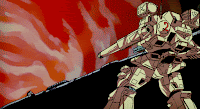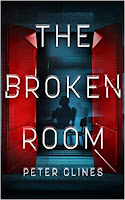I know, I know. I’ve been really bad
about this lately. As some of you may be aware, it’s been a wild
month for me. New book comes out next week, so I’ve been doing
tons of promo stuff, some interviews, scheduling other promo stuff and interviews, and also—when I can—trying to work on
my new book. The one everyone’s going to be asking about week after
next.
Oh, and I also spent some time going up on the roof (twice!) trying to fix a tarp. That ate up a fair amount of time.
Also,
random fun fact-- this is post #750 here on the ranty writing blog.
Yay to all of us for sticking with it this long. Hopefully
you’ve gotten something out of all these random rants and musings.
Also-also...
holy crap this has been a stressful week. We’ve been dealing with
some horrible stuff here in the states and as of last night a large
chunk of Eastern Europe kind of spiraled into.. well, hell. So I
completely get it if you’re not up to this right now. It might help
get your mind off things, but it also might feel kind of frivolous,
both me writing this and you reading it, and stress you out even
more. I know why I’m here, but seriously-- if you need a minute to
not look at a screen, to just close your eyes and listen to music or
something... go for it. Take ten, take a few deep breath, put your
favorite song on repeat. Take care of yourself, okay? You can’t do
anything if you’re a wreck, so do what you need to keep yourself
together.
Anyway...
I
wanted to talk to you real quick about that unknown thing. You know
the one I’m talking about. Yeah, that.
So,
hey, I was watching a Saturday geekery movie a few weekends back, and
the actors, director, and even the writer didn’t know what the
monsters were. From a production point of view, anyway. Y’see, it
was pretty clear the movie was done very cheap and on the fly,
without much of a script. It’s my educated guess that
they just shot the movie and figured “well, when we’re in post
we’ll see what the special effects house has for cheap models and
CGI in some kind of monster then.”
The
problem, of course was... well, they’re filming now. And the actors
need to look at that spot on the driveway and pretend there’s
something there. But they can’t say anything definitive
because nobody knows what it’s going to be. Maybe dinosaurs. Maybe
giant insects. Maybe dragons. Who knows. Again, we’ll figure it
out later, right? For now, just... be vague. Act confused.
Which
they did. A lot. And it got thin really fast. Because while it was
unknown to them, filming the movie, the monsters were very clear and
visible to us watching the finished movie. So nobody’s
reactions made any sense, because nobody knew what they were
reacting to. What it was doing, how big it was, nothing. People were
looking past monsters, above monsters, at one point kind of
uncomfortably at a monster’s crotch.
Plus,
nobody’s dialogue made any sense because it was all about “those
things” rather than what those things were. I mean... that’s a
dinosaur. No question. Even if it’s secretly a giant robot or an
alien, it looks exactly like a dinosaur and it’s kind of
silly for nobody to say that. If anything, it makes the characters
look really stupid.
Perhaps
even more jarring, nobody ever talked about why
these things were there. I mean, if you and I went outside and almost
got killed by a dinosaur/giant spider/dragon and ran back inside
(slamming the door behind us), it makes sense we’d be yelling “WTF
was that?!?!” But after things calmed down a bit and we had time to
talk... wouldn’t we wonder how there’s a dinosaur in the
driveway? Maybe question where these giant spiders came from? That’d seem kind of natural, right?
But
the characters couldn’t have these conversations because nobody
actually knew what was in the driveway. A bat-winged demon with a
spiked tail and a killbot with missile pods on its
shoulders would spark two very different discussions. But we don’t
know what it’s going to be, sooooooo... the characters need to talk about something else. And not the giant monsters outside. Maybe about how she hates her job. Or why they wish they hadn’t
argued with their girlfriend this morning. Maybe a little monologue about faith or humanity's basic nature.
Anyway,
have you figured out how this applies to writing in general?
It’s
pretty common in fiction to have “unknown” elements. The faceless
enemy. The mysterious figure. The unseen monster. Things that leave
our characters confused and maybe angry and trying to figure out what
the heck’s going on.
But...
at some point they’re going to find out what that unknown element
actually is. Either that, or we need to have a serious talk about it’s aggressively unknown state. And once it’s
known, everything still has to make sense. The way Phoebe reacted in
chapter four. Dot’s vague statements in chapter eight. How Wakko was killed in chapter fifteen. All of that’s going to line
up and make sense with the now-known element, right? And, yeah, even
if I want to keep things unknown to my readers (and maybe my
characters, too) for the whole story, I still need to
know what this unknown element is.
Y’see,
Timmy, the world I’m creating needs rules. because my readers are
going to sense if I’m just sort of winging it and saying “anything
goes.” Doesn’t matter if it’s sci-fi or supernatural or ancient
elder evil from the dawn of time—my story comes with an unwritten promise that all this makes sense. I’m not cheating you, there really is a logic to this. I might not directly
tell it to you, but you should still feel it and see its affect on
things.
So,
yeah, I can use the unknown. But at the least, I need to know which
unknown I’m using. because believe me... they’ll know.
Crap,
like I said above, there’s a lot happening between now and then.
The Broken Room comes out next Tuesday, and if you’d
like to pick up a copy in your preferred format, that’d be super
cool. If you’re so interested, I’m also doing signings Wednesday
at Mysterious Galaxy and Saturday at Dark Delicacies. You could
pre-order from either of them, wherever you are, and get a
personally-defaced copy shipped to your doorway. If you order from
Mysterious Galaxy, you can watch me babble about the book online in
real time.
Anyway,
next time, I’d like to talk about making stuff up.
Until
then, go write.
And
seriously. Take ten. Take a few deep breaths. Drink some water.
Listen to some music.








